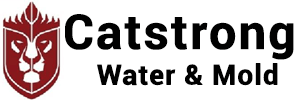Mold Inspection Fabens and Testing
We offer Mold Inspection Services in Fabens , call us today!
Mold Testing Fabens and Inspection
✅Call +18888872075. We are a full service restoration company providing "mold inspection near me" and "mold testing near me" assessments, inspections, and testing services. Our focus is "mold inspection Fabens, TX" and "mold testing Fabens, TX".
What is mold?
Mold or mold, also sometimes referred to as mildew, is a fungal growth that develops on wet materials. Call ✅Call (915) 800-3922. Mold is a natural part of the environment and plays an important part in nature by breaking down dead organic matter such as fallen leaves and dead trees; indoors, mold growth should be avoided.
Luckily, mold spores only form mold when they land on a moist surface. That means that if you can keep the interior of your home dry, you can avoid having any problems or mold issues. The best way to prevent mold in your home is to clean up spills, repair leaks in your roof, plumbing or HVAC system or air-conditioning system and make sure your kitchen and bathroom are properly venting moisture out of the house.
There are two major cleanup reasons for mold removal by a licensed water damage restoration or mold remediation business accredited by the bbb (read the bbb business profiles) of any mold growing in your house: mold damages the surface it is growing on and mold may aggravate allergies or asthma. You need mold remediation services to get rid of your mold.
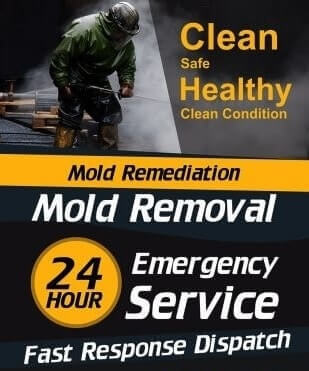
Why is mold bad?
Exposure to damp and moldy environments may cause a variety of safety and health and safety effects, or none at all. Some people are sensitive to molds. For these people, exposure to molds can lead to symptoms such as stuffy nose, wheezing, and red or itchy eyes, or skin. Some people, such as those with allergies to molds or with asthma, may have more intense reactions. Severe reactions may occur among workers exposed to large amounts of molds in occupational settings, such as farmers working around moldy hay. Severe reactions may include fever and shortness of breath.
Negative Health Effects from Mold
In some cases, mold in your home can make you sick, especially if you have allergies or asthma. Whether or not you're allergic to molds, mold exposure can irritate your eyes, skin, nose, throat, and lungs. Here's what you can do to combat mold problems, and take care of yourself and your home.
Mold inspection Cost in TX
A mold inspection is essential for your family’s health and well-being. Mold is a fungus and requires moisture to grow and flourish. Even in small quantities, the mold spores can quickly become airborne in the home and lead to health problems (especially of the respiratory tract) for the inhabitants. The black mold can spread and cause extensive structural damage. This situation requires repairs and mold remediation. Mold inspection process costs vary widely depending on the size of the property, extent of the mold detection, number of bulk and dust sampling, and other factors. We've heard of pricing as low as $500 and as high as $3,000.
Signs of Mold in your Fabens House
- Your air conditioning or heating smells weird
- The grout between your shower tiles is dark
- Your wallpaper is peeling
- You feel like you have a cold that just won't go away
- You find dark or colored spots on your walls
- Your asthma mysteriously worsens
- You feel itchy
- Your seasonal allergies never subside
- There’s a musty odor
- You have artificially humidified your home
- You live in a new home
- You’re tired all the time
- Your sink or toilet flooded
What affects the cost of a mold inspection Fabens?
Type of Building
Mold inspection companies usually charge more money for commercial buildings than residential ones. This is probably because of the size of the building, which is obviously larger than a residential building. They use square feet to measure the size of the building and they have a standard price for every square feet. Commercial buildings are also more complex than residential ones in that they have certain building codes, all that may make the prices of mold inspection go a little higher. Clients should read about fair housing and tenant rights.
Size of the Building
As aforementioned, professional mold inspectors use square feet to determine the size of a building. Different companies charge a certain amount for every square feet. The price for the whole house is calculated by multiplying the number of square feet by the price of one square feet. A larger house will cost more than a smaller one since it has a higher number of square feet than a smaller house.
The Inspecting Company
Highly rated and experienced companies are more likely to charge a little higher than those that are just getting started since they employ Mold Assessment Consultants who use flir cameras, those that do not have a high rating and are new in the highly competitive industry. This is most probably because experienced companies are more engaged in many bookings and are busy, hence competitive. Despite this, it is important to note that prices do not vary as much but beware of hidden fees, just a slight difference of maybe around tens of dollars. However, you will be more advantaged to work with a highly rated company because they will do a better job than one with lower ratings or a little experience.
Mold Assessment Consultant
- Plan surveys to identify conditions favorable for indoor mold growth or to determine the presence, extent, amount, or identity of mold or suspected mold in a building from water-damage;
- Conduct activities recommended in a plan developed under paragraph (1) and describe and interpret the results of those activities;
- Determine locations at which a quality assessment technician will record observations, take measurements, or collect samples;
- Prepare a #moldassessment report, including the observations made, measurements taken, locations of samples collected, analysis results, and analysis and interpretation of results of samples taken by the consultant during the mold assessment; The mold assessment report should identify the source of mositure.
- Develop a mold management plan for a building, including recommendations for periodic surveillance, response actions, and prevention and control of mold growth;
- Prepare a mold remediation protocol, including the evaluation and selection of appropriate methods, personal protective equipment (PPE), engineering controls, project layout, post-remediation clearance evaluation methods and criteria, and preparation of plans and specifications;
- Evaluate a mold remediation project to certify that mold contamination identified for the remediation project has been remediated as outlined in a mold remediation protocol;
- Evaluate a mold remediation project to certify that the underlying cause of the mold has been remediated so that it is reasonably certain that the mold will not return from that remediated cause; and complete appropriate sections of a Certificate of Mold Damage Remediation as specified under §78.150(b).
Type and Number of Samples
Professional mold inspectors usually carry out three different tests which are evaluated in a state licensed lab. The first one is the indoor air quality control sample that is aimed at determining if the airborne levels are within the acceptable limits or are above the limit. The sample is collected by the use of an air pump and a spore trap. A cavity sample using a borescope is used to determine if above limit levels exist behind the walls. This sample is collected whenever signs of discoloration and moisture detection on the walls. Surface samples on the other hand are collected from any surface that shows signs of infestation. They are done by the use of a medical swab or tape lift and are aimed at determining the source of the airborne levels.
When to Inspect for Mold
One good thing about mold- it is microscopic. Even if you don't see it you have visible mold in your school. Mold is inatrually in the outside air. The question is whether you have allergens, toxigens, or pathogens in your house and the mold spore counts for
Seeing mold in the cracks and corners of your walls definitely means it is growing and spreading more spores. Keep in mind that mold may also grow in places you cannot see, such as in your ducts or between your walls. It may also form colonies so tiny they escape the eye. A few situations should make you look for any mold problems in your house.
Water damage
If your basement flooded, roof leaked, or a broken pipe sprayed water all over the kitchen, you need to inspect for mold. Any place that got wet and was not quickly dried (within 24 to 48 hours) could become contaminated by mold. Purchasing a new home. There is no way to know what kind of water damage may have happened in the house you are planning to buy. The only way to find out if mold is present is to do a mold inspection. After a house has been unoccupied. If a house has been closed up and unoccupied for months or years, humidity could have built up inside and caused mold to grow. This is especially a problem in warmer areas with high humidity. Dehumidifers remove mositure from the air while humidifers add moisture to the air. After mold remediation. If you have gone through the often expensive and difficult steps to deal with a mold problem, regular mold inspections are a good idea to make sure you really got rid of it all. You see some mold. If you notice some green, blue, black or white stuff growing in your house, do a mold inspection to make sure you find it all. It might not be restricted to one location.
As a rough guideline, a mold inspection costs about the same as a regular home inspection, the kind that is done when you purchase a new home. On average, mold inspection costs $300 to $400 for small to medium-sized houses (below 4,000 square feet). Above 4,000 square feet, the cost increases to the $700 to $900 range. Keep in mind that these costs are for inspection only and do not necessarily include testing. Skipping the unneeded #moldtesting can save you some money.
Mold Sampling Methods
Air sampling using a “spore trap” sampler. Considerable information can be obtained about the environment from which the air sample was taken. For example, determining the types and concentrations of mold spores and other particles in the sample. Surface sampling using a “tape-lift” method. This method can determine what molds are growing on a surface, if mold is present at sub-visible concentrations, or if mold spores have been settling out of the air in an unusual quantity.
After the inspection
If the mold inspection finds mold in your home, the next step is to make a remediation plan. This always begins with removing the source of the moisture that’s allowing the mold to grow. If you fail to remove the moisture from the drywall, you can clean up all the mold and mold grows back. Then, hard surfaces can be scrubbed and washed. Soft surfaces like carpets or foam tiles have to be cut out and replaced. It is impossible to clean all the mold off of porous surfaces.
This can be a do-it-yourself job if the mold is only in a small area. If the mold contamination exceeds 10 square feet, the #EPA recommends calling in a contractor experienced in mold remediation. Mold can be dangerous, or at least unpleasant, to work with, especially for someone with allergies or asthma. That’s why larger contaminations are better left to professionals with the correct safety gear and cleaning equipment.
Preventing mold
Getting rid of mold in your house can be a major task, and remediation can be expensive if the mold is widespread. The best tips environmental solutions mentioned by industrial hygiene experts for preventing mold growth from ever happening are:
- Repair leaks promptly. Whether it is a leak in your roof or a rusted out water pipe, fix leaks and keep moisture out of your house.
- Clean and dry things promptly. If your basement floods or condensation from your air-conditioner drips onto a carpet, dry everything out within 24 to 48 hours. Mold needs moisture to grow, so prompt drying is vital. Bleach isn't your enviornmental solution.
- Control humidity. Extremely humid air can provide enough moisture for mold to form on some surfaces. Use a dehumidifier in your basement and run air-conditioning when possible during the summer. Install vents in your kitchen and bathroom. This will keep humidity down and keep moisture under control.
Mold is a serious problem, and spotting mold contamination before it grows out of control can save you thousands of dollars. This makes the cost of a #moldinspection well worth a few hundred dollars when you are buying a new house. A Mold test, however, is not really worthwhile. The important thing is, if you see mold in your house, you need to get rid of it as soon as possible.
According to the EPA’s a Brief Guide to Mold
- The key to mold control is moisture control
- It is important to begin drying flooded areas and items within 24-48 hours to prevent mold growth
- There are many types of mold, and none of them will grow without moisture
What is Mold? - Fabens
Molds are tiny fungi that grow in damp indoor environment. Unlike plants that require photosynthesis to grow, molds survive by producing enzymes onto the raw material they are occupying and then soaking up the degraded remains of that matter. Because molds don't require a high level of nutrients to endure they can grow on almost any organic matter, from foodstuff to paper products.
Why Should It Be Removed?
Lots of people will establish mold health issues like rhinorrhea, throat irritation, allergy to the spores caused by big mold colonies. If an individual touches a mold nest in anyway, there is the possibility they might establish a type of dermatophytes, like athlete's foot or jock itch. Mycotoxins are liquid or gaseous compounds produced by many mold nests and are considered a few of the most toxic chemicals on the planet. If this is ingested, both people in addition to animals can get seriously ill. This is why prompt attention and mold clean-up is required.
How to Stop Mold Growth in House
Given the climate in Fabens area, the following guide will assist you in having a more healthy environment.
- Control moisture. Keep the humidity level under 60 percent.
- Dry up wet materials quickly. It only takes mold two days to grow.
- Clean, disinfect, and dry surfaces prone to mold growth. A vapor steam cleaner may .
- Repair leaks. Replace dilapidated old pipes. Fix leaks on the roof, walls, and foundation of the house. Unclog HVAC units drain regularly.
- Dry items thoroughly before storing them.
- Improve airflow at home. Start with opening closet doors more frequently and moving furniture far from walls to providing better ventilation to confined spaces. The more windows you can open, the better.
- Monitor your basement’s ventilation. Set up a foundation drain, put in a dehumidifier, insulate walls, set up a thermal plane, and let the entire room dry.
Mold
Mold or mold, also sometimes referred to as mildew, is a fungal growth that develops on wet materials. Mold is a natural part of the environment and plays an important part in nature by breaking down dead organic matter such as fallen leaves and dead trees; indoors, mold growth should be avoided.
Mold inspection is, for the most part, a visual inspection of a house. A typical mold inspection involves the mold inspector providing emergency services talking to the property owner about any areas where they have seen mold, or where there have been moisture problems or water damage in the past.
How Can I Tell If I Have a Mold Outbreak?
A professional mold inspection service can assist you figure out if mold has actually resided in your house or office. Mold spores are quickly spotted, even in smaller sized colonies, and sometimes put off a musky, earthy smell. If parts of your building are cool, dark, and damp, you can be pretty sure you have mold growing there.
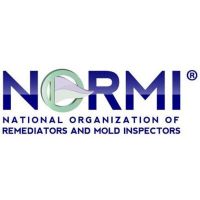
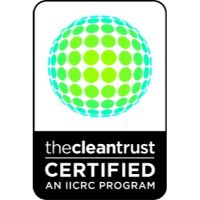
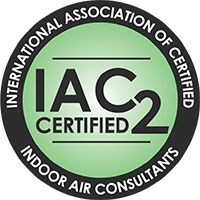

#1 Fabens's TX Mold Inspection Company
| Mold Remediation |
| Fire Restoration |
| Disinfection Services |
| Commercial Roof Replacement |
| TPO Roof Replacement |
| More Information about Fabens TX |
| Fabens Neighborhoods, Restaurants and Hotels |
More about Fabens
/home/costabella/public_html/include-pagefilles/body/texas-fabens-body.html
Fabens
Learn more about Fabens TX - Visit
Catstrong is a Mold Inspection Company servicing the entire Fabens TX
area, including .We believe on being on time and our team uses checks the traffic while on our way to you in Fabens.
Why Choose Us?
- Very Experience
- Open 24 Hours Every day
- Fast Arrival Time
- Competitive Pricing
- Accepting Credit Cards
- Quick and Honest Service
- Excellent Customer Service
- Commitment and Promise
- Embrace New Technology
| Mold Inspection | Mold Remediation |
- Abilene, TX
- Cisco, TX
- Floydada TX
- Hollywood Park TX
- Kenedy TX
- La Villa TX
- Pampa TX
- Presidio TX
- Waller TX
- Spring Valley Village TX
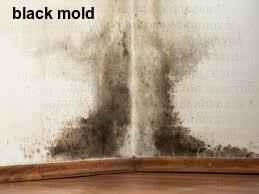
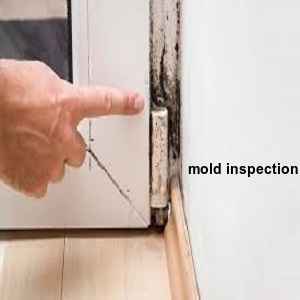
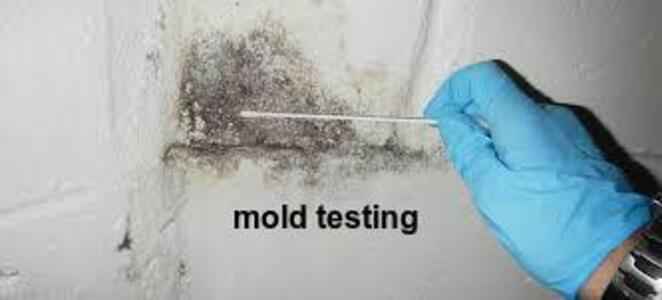

Services Offered in Fabens
- Mold Testing Companies
- Mold Inspection Cost
- Mold Inspection
- Mold Inspection And Testing
- Mold Testing Cost
- Mold Protocol
- Clearance Testing
- Mold Assessment
- Air Sample
- Swab Sample
- Bulk and Dust Sample
